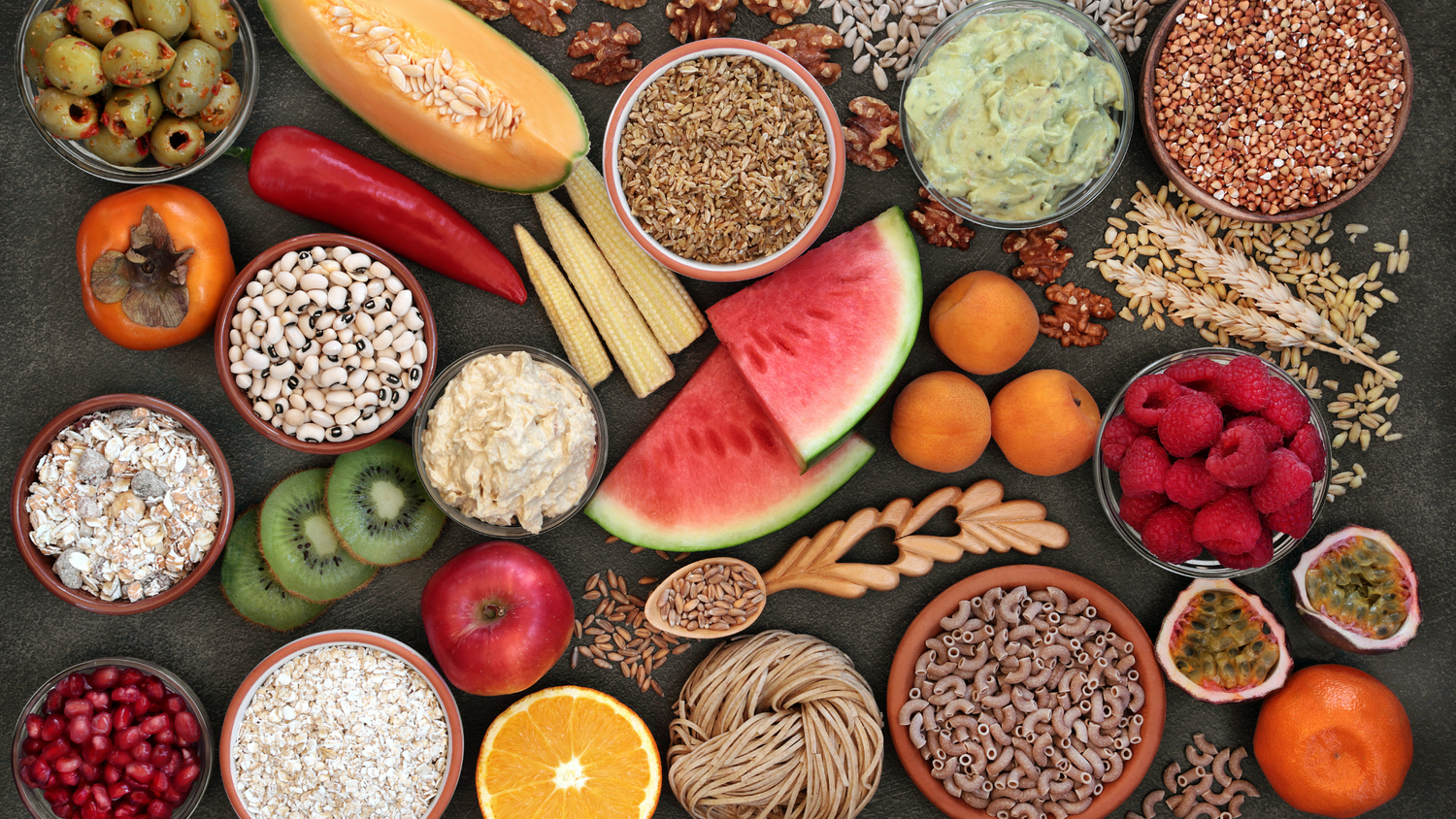Maintaining high energy levels throughout the day requires a balanced diet rich in nutrients that provide sustained energy release. The best foods for energy are those that offer a combination of complex carbohydrates, proteins, healthy fats, and essential vitamins and minerals. Here are some top food choices to keep your energy levels up:
- Complex Carbohydrates
Complex carbs provide a steady release of energy due to their slower digestion and absorption.
- Oats: High in fibre and a good source of complex carbohydrates, oats help maintain blood sugar levels and provide long-lasting energy.
- Quinoa: A high-protein grain that also offers a rich source of complex carbohydrates, providing sustained energy.
- Sweet Potatoes: Packed with complex carbs, fibre, and vitamins, sweet potatoes are great for energy and are also rich in beta-carotene.
- Brown Rice: Provides fibre and complex carbohydrates for a steady energy supply.
- Lean Proteins
Proteins are essential for muscle repair and overall energy maintenance.
- Chicken Breast: A lean source of protein that helps build and repair tissues, keeping your energy levels stable.
- Fish: Fatty fish like salmon and tuna are rich in protein and omega-3 fatty acids, which support heart health and energy production.
- Greek Yogurt: Higher in protein than regular yogurt, Greek yogurt also provides calcium and probiotics, which are good for gut health.
- Eggs: A complete protein source with essential amino acids that support energy levels and muscle repair.
- Healthy Fats
Healthy fats are essential for long-lasting energy and are crucial for brain health.
- Avocado: Rich in monounsaturated fats, fibre, and vitamins, avocado provides a slow-release energy source.
- Nuts and Seeds: Almonds, walnuts, chia seeds, and flaxseeds are excellent sources of healthy fats, protein, and fibre.
- Olive Oil: Contains monounsaturated fats that support heart health and provide a steady source of energy.
- Fruits
Fruits are a natural source of simple sugars, vitamins, and fibre, offering quick and sustained energy.
- Bananas: High in potassium and natural sugars, bananas are great for quick energy boosts and are also easy to digest.
- Apples: Provide fibre and natural sugars for sustained energy release.
- Berries: Rich in antioxidants and vitamins, berries also offer natural sugars and fibre.
- Oranges: Packed with vitamin C and natural sugars, oranges are great for a quick energy lift.
- Vegetables
Vegetables are essential for overall health and provide vitamins, minerals, and fibre.
- Leafy Greens: Spinach, kale, and other leafy greens are high in iron, which is crucial for oxygen transport in the body and energy production.
- Carrots: Provide beta-carotene and fibre, which are good for sustained energy.
- Bell Peppers: High in vitamin C and fibre, helping to boost energy and immune function.
- Whole Grains
Whole grains provide complex carbohydrates, fibre, and essential nutrients.
- Whole Wheat Bread: A good source of fibre and complex carbs, ideal for sustained energy.
- Barley: Rich in fibre and nutrients, barley provides long-lasting energy.
- Brown Rice: Offers complex carbohydrates and fibre for a steady energy release.
- Legumes and Beans
Legumes are an excellent source of protein, fibre, and complex carbohydrates.
- Lentils: Packed with protein, fibre, and iron, lentils help sustain energy levels.
- Chickpeas: Provide protein, fibre, and complex carbs, making them great for energy.
- Black Beans: High in protein and fibre, they help keep energy levels stable.
- Dairy Products
Dairy products are good sources of protein and calcium, essential for muscle function and energy.
- Milk: Contains a good balance of protein, fats, and carbohydrates.
- Cheese: Provides protein and fats for sustained energy.
- Greek Yogurt: High in protein and can be paired with fruits for an energy-boosting snack.
Conclusion
To maintain high energy levels, it’s important to consume a balanced diet that includes a mix of complex carbohydrates, lean proteins, healthy fats, and a variety of fruits and vegetables. Staying hydrated and eating regular, balanced meals throughout the day can also help maintain energy and prevent fatigue.








Leave a comment
All comments are moderated before being published.
This site is protected by hCaptcha and the hCaptcha Privacy Policy and Terms of Service apply.